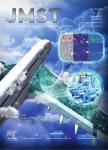Microstructure, biodegradation, antibacterial and mechanical properties of ZK60-Cu alloys prepared by selective laser melting technique
Microstructure, biodegradation, antibacterial and mechanical properties of ZK60-Cu alloys prepared by selective laser melting technique作者机构:State Key Laboratory of High Performance Complex Manufacturing College of Mechanical and Electrical Engineering Central South University Changsha410083 China Jiangxi University of Science and Technology Ganzhou 341000 China Key Laboratory of Organ Injury Aging and Regenerative Medicine of Hunan Province Changsha 410008 China School of Material Science and Engineering Central South University Changsha 410083 China Health Management Center Xiangya Hospital Central South University Changsha 410008 China
出 版 物:《Journal of Materials Science & Technology》 (材料科学技术(英文版))
年 卷 期:2018年第34卷第10期
页 面:1944-1952页
核心收录:
学科分类:08[工学] 080502[工学-材料学] 0805[工学-材料科学与工程(可授工学、理学学位)]
基 金:supported financially by the National Natural Science Foundation of China(Nos.51575537,81572577 and51705540) the Hunan Provincial Natural Science Foundation of China(No.2016JJ1027) the Project of Innovation-driven Plan of Central South University(No.2016CX023) the Open-End Fund for the Valuable and Precision Instruments of Central South University the Fund of the State Key Laboratory of Solidification Processing at NWPU(No.SKLSP201605) the Project of State Key Laboratoryof High Performance Complex Manufacturing,Central South University the National Postdoctoral Program for Innovative Talents(No.BX201700291) the Project of Hunan Provincial Science and Technology Plan(No.2017RS3008)
主 题:Magnesium alloys Copper Antibacterial ability Cytocompatibility Mechanical properties
摘 要:Magnesium (Mg) alloys are receiving increasing attention for body implants owing to their good bio- compatibility and biodegradability. However, they often suffer from bacterial infections on account of their insufficient antibacterial ability. In this study, ZK60-xCu (x = O, 0.2, 0.4, 0.6 and 0.8 wt%) alloys were prepared by selective laser melting (SLM) with alloying copper (Cu) to enhance their antibacterial ability. Results showed that ZK60-Cu alloys exhibited strong antibacterial ability due to combination of release of Cu ions and alkaline environment which could kill bacteria by destroying cellular membrane structure, denaturing enzymes and inhibiting deoxyribonucleic acid (DNA) replication. In addition, their compres- sive strength increased due to grain refinement and uniformly dispersing of short-bar shaped MgZnCu phases. Moreover, ZK60-Cu alloys also exhibited good cytocompatibility. In summary, ZK60-Cu alloys with antibacterial ability may be Dromising implants for biomedical anDlications.



